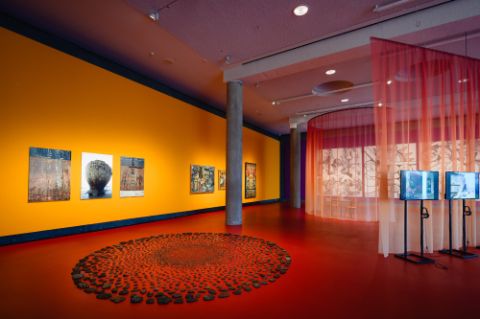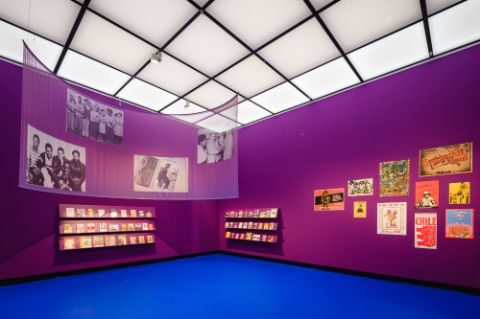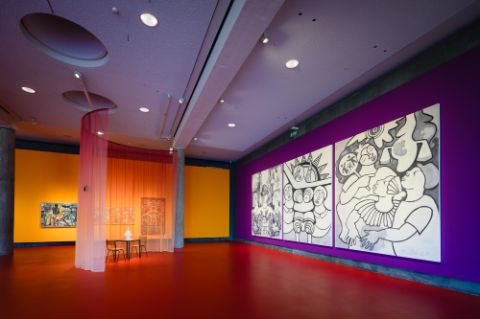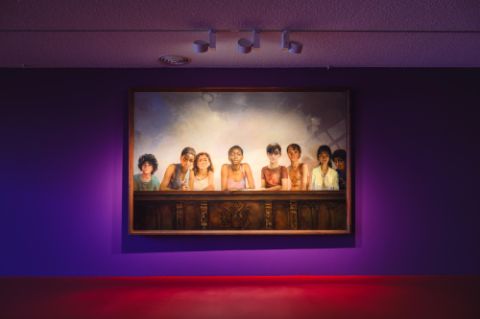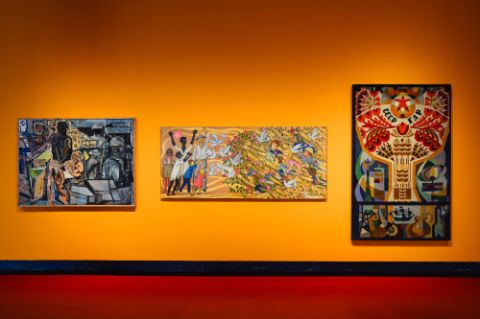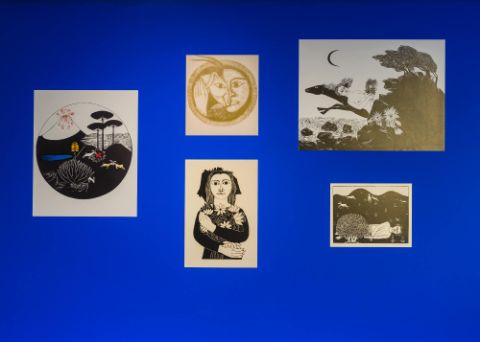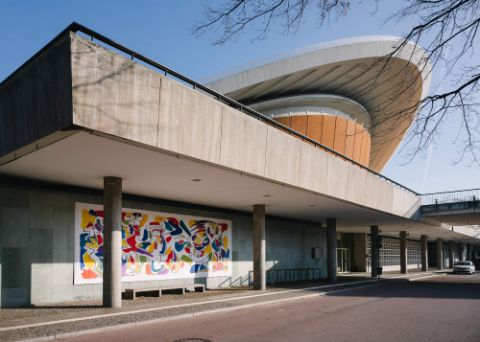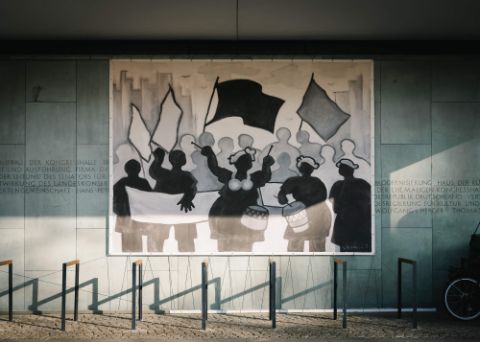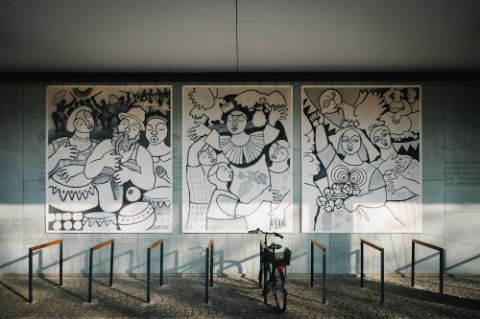Echoes of the Brother Countries
What is the Price of Memory and What is the Cost of Amnesia? Or: Visions and Illusions of Anti-Imperialist Solidarities
An exhibition and research project at Haus der Kulturen der Welt
1.3.–20.5.2024
Between 1949 and 1990, thousands migrated to the GDR from countries such as Algeria, Angola, Chile, Cuba, Guinea-Bissau, Mozambique, Syria, and Vietnam. Their stories remain largely untold. The exhibition and research project Echoes of the Brother Countries is dedicated to the often overlooked political, economic, educational, and artistic links, as well as the exchange and migration movements between the GDR and other socialist-orientated states, the so-called brother countries.
However, in the shadow of the iconographic depictions of solidarity such as a ‘united class struggle’ or ‘socialist internationalism’, there were other realities. Despite the GDR’s emphasis on fair labour conditions and professional development, migrants experienced labour exploitation, cramped living quarters, surveillance, curtailment of certain freedoms such as getting pregnant or being in a relationship, racist and xenophobic attacks, withheld wages and broken promises by their governments and the GDR government.
However, there were also practices of solidarity across individual, local, national, and global scales, including GDR support for so-called anti-colonial, anti-imperialist, and liberation struggles in other parts of the world. How were these relations made possible? And how much of this history and its legacies remain visible today?
The exhibition and research project brings together numerous positions that create a common space for remembrance, dialogue, and reflection on transnational solidarities and contradictions. With an extensive opening and educational programme, Echoes of the Brother Countries explores the question of how these interwoven histories continue to shape the former brother countries to this day, especially the lives of the people who migrated under the conditions of these alliances.
The multidisciplinary project critically maps the GDR history and relations with its brother countries, a term that is critically taken up for its gendered problematics, and illusions of and allusions to equality. Amid erasures, gaps, and absences in broader public educational discourses, the project attempts to understand the reverberations of those histories in Germany as well as in the former brother countries to situate these relations as part of a global history of cultural movement and exchange.
To the curatorial statement
With contributions by: Abed Abdi, Khaled Abdulwahed, Donald Acquaye, Maimuna Adam, Kais al-Zubaidi, Santos Chávez, Ivan Cibulka, Sarah Ama Duah, Nguyễn Lương Đức, Ângela Ferreira, Carla Filipe, Lea Grundig, Sami Hakki, Kiluanji Kia Henda, Intergenerational Solidarities: Graphic Novel Workshop, Isaac-Newton-Schule, Emile Itolo, Januário Jano, Hiwa K, Euridice Zaituna Kala, Martha Ketsela, Songhak Ky, Verena Kyselka, Heinz-Karl Kummer, Hernando León, Humberto López, MORUS-Oberschule, Nástio Mosquito, Olu Oguibe, César Olhagaray, Zohra Opoku, Charles Owusu, Minh Duc Pham, Gertraude Pohl, Elske Rosenfeld, Riad Ali Saad, Farkhondeh Shahroudi, Sophie-Brahe-Gemeinschaftsschule, Dito Tembe, Sung Tieu, Christoph Wetzel, Horst Weber, among others
Mediathek
Gallery and videos of the project in the HKW Mediathek.
